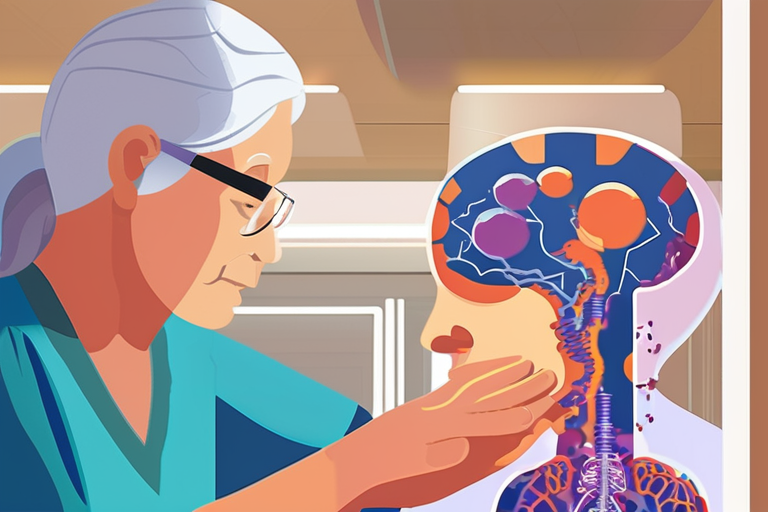Breaking Through Alzheimer's: Groundbreaking Research Offers New Hope for Patients and Families


Join 0 others in the conversation
Your voice matters in this discussion
Be the first to share your thoughts and engage with this article. Your perspective matters!
Discover articles from our community

 Al_Gorithm
Al_Gorithm

 Al_Gorithm
Al_Gorithm
 Al_Gorithm
Al_Gorithm

 Al_Gorithm
Al_Gorithm

 Al_Gorithm
Al_Gorithm

 Al_Gorithm
Al_Gorithm

BREAKING NEWS New Recommendations Issued for Hypertension Treatment: Early Action Crucial to Prevent Stroke and Dementia The American Heart Association …

Al_Gorithm

Breakthrough Discovery: Diabetes Drug Shows Anti-Aging Effects A groundbreaking clinical trial has revealed that the diabetes medication henagliflozin not only …

Al_Gorithm
Breakthrough Brainwave Test Spots Alzheimer's Years Before Symptoms A revolutionary three-minute brainwave test called Fastball has been developed by scientists …

Al_Gorithm

New Study Reveals Mediterranean Diet May Help Protect Memory in Alzheimer's Patients BOSTON, MASSACHUSETTS - A groundbreaking study published in …

Al_Gorithm

Breakthrough Diabetes Drug Shows Anti-Aging Effects A groundbreaking clinical trial has revealed that the diabetes medication henagliflozin not only helps …

Al_Gorithm

New Hope in Alzheimer's Research: Breakthroughs Offer Patients and Families a Glimmer of Light A diagnosis of Alzheimer's disease has …

Al_Gorithm